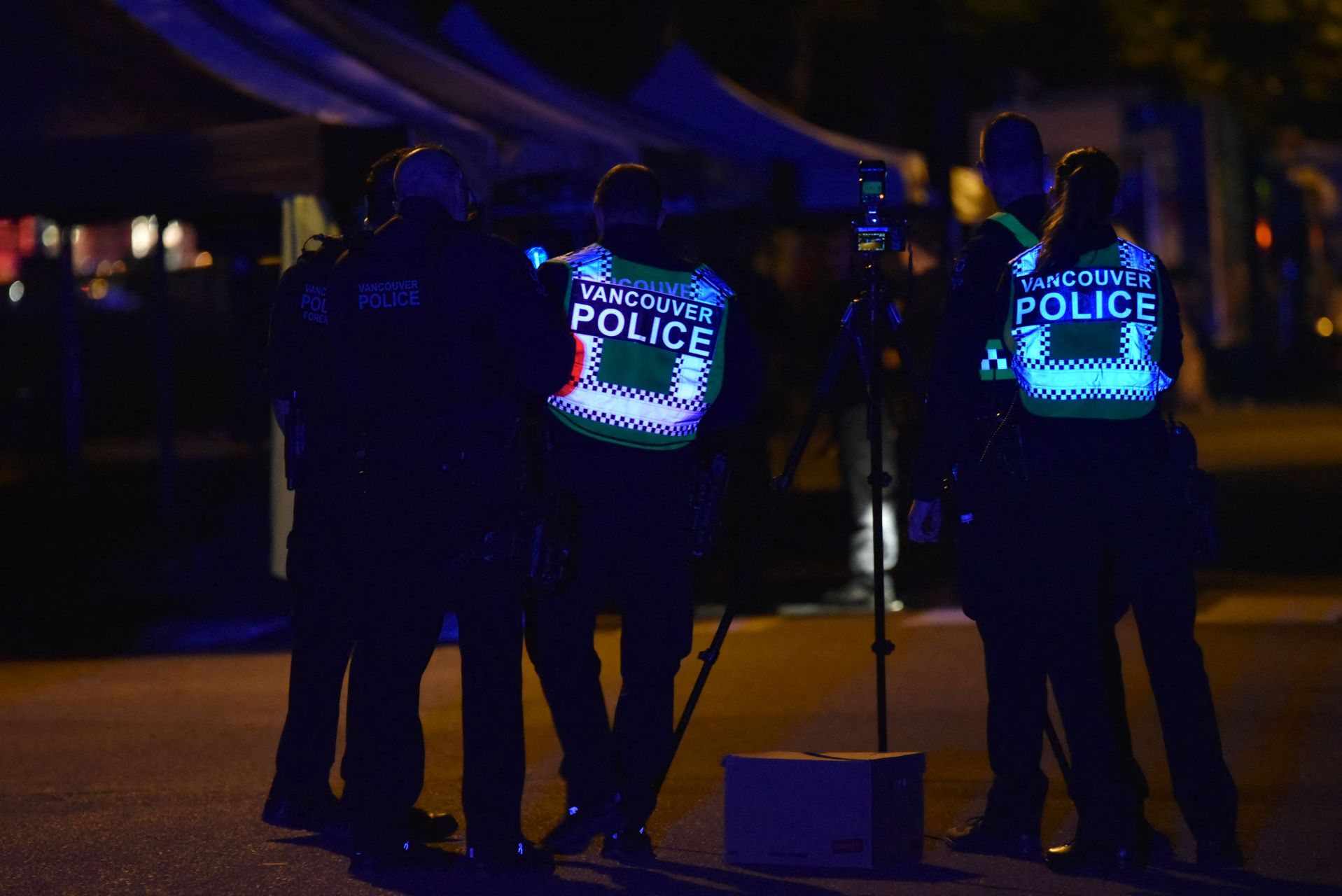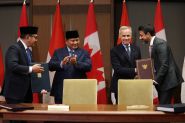
Canadian leaders made their final push for votes Sunday, one day before an election dominated by President Donald Trump's policies, but rattled in the campaign's final hours by a deadly car-ramming attack in Vancouver.
Prime Minister Mark Carney, the Liberal Party leader, is favored to beat Conservative leader Pierre Poilievre in Monday's vote, but polls show the race has tightened in recent days.
The prime minister briefly paused his campaign schedule on Sunday to address the nation after a driver plowed into a crowd at a Filipino street festival in the west coast city, killing nine people.
Carney, a 60-year-old father of four, teared up as he voiced support for those affected by the "nightmare" attack, but said there was no indication of an ongoing "active threat to Canadians."
A 30-year-man has been arrested by Vancouver police, who have ruled out terrorism as a motive.
Poilievre, appearing alongside his wife at a church in the election battleground city of Mississauga west of Toronto, condemned the attack as a "senseless act of violence."
"Our hearts are with you today. All Canadians are united in solidarity with the Filipino community," Poilievre said.
The Vancouver attack briefly shifted the nation's focus away from Trump, whose trade war and threats to annex America's northern neighbor have outraged Canadians.
Polling consistently shows that Canadians believe Carney -- a former investment banker who also led the central banks of Canada and Britain -- is the strongest candidate to take on Washington.
"This is an existential issue that we're facing," retired Ottawa resident Brian Carr told AFP on Sunday, referring to US government hostility.
Carr, 79, said he was supporting Carney because the Liberal leader "has demonstrated throughout his career that he is capable of leading and dealing with financial issues."
Julie Dunbar, a 72-year-old Ottawa resident, told AFP she was impressed by Carney's "experience on the international stage."
Since replacing Justin Trudeau as prime minister on March 14, Carney has sought to convince voters that his resume has prepared him to lead Canada through a trade war and respond to tariffs that are pinching key sectors like auto and steel.
Change coming?
Poilievre, a 45-year-old who has been in parliament for two decades, has worked to keep the focus on living costs that soared during Trudeau's decade in power, arguing Carney would bring a continuation of what he calls failed Liberal governance.
Addressing a boisterous crowd of supporters in the northern Ontario nickel mining city of Sudbury late Saturday, before the Vancouver attack, Poilievre promised "change is only a few days away."
"Every single day I meet young couples in their 30s who believe they will never be able to afford to have kids because they have no home in which to raise them," the Tory leader said.
"It was not like this before the lost Liberal decade."
At the start of the year, Poilievre appeared on track to be Canada's next prime minister.
His party led the Liberals by more than 20 points in most polls on January 6, the day Trudeau announced his plans to resign.
But the Trudeau-for-Carney swap, combined with nationwide unease about Trump, has transformed the race.
The public broadcaster CBC's poll aggregator on Sunday put the Liberal's national support at 42.8 percent, with the Conservatives at 38.8 percent.
Provincial battles
As with US elections, national polling numbers may not predict a result.
When voting closes on Monday, Conservatives will be closely watching the performance of the left-wing New Democratic Party and the separatist Bloc Quebecois.
In past Canadian elections, strong NDP performances in Ontario and British Columbia, and a good showing by the Bloc in Quebec, have curbed Liberal seat tallies.
But polls show both smaller parties could be headed for major setbacks as swing voters flock to the Liberals, who they trust to confront the unpredictable threats of Trump's second term.
Canada's parliament has expanded to 343 seats, meaning 172 are needed for a majority.
Trudeau and the Liberals held a majority following the 2015 vote but have governed with minorities in parliament since 2019.
By Agnes Bun with Ben Simon in Montreal/AFP




Comments